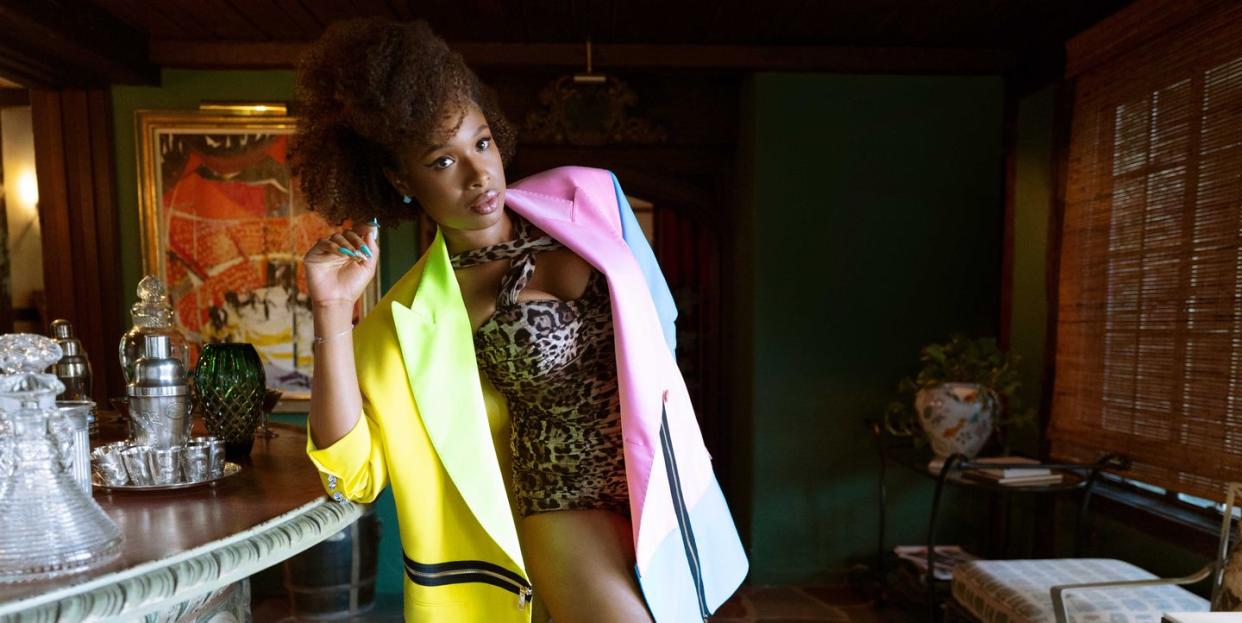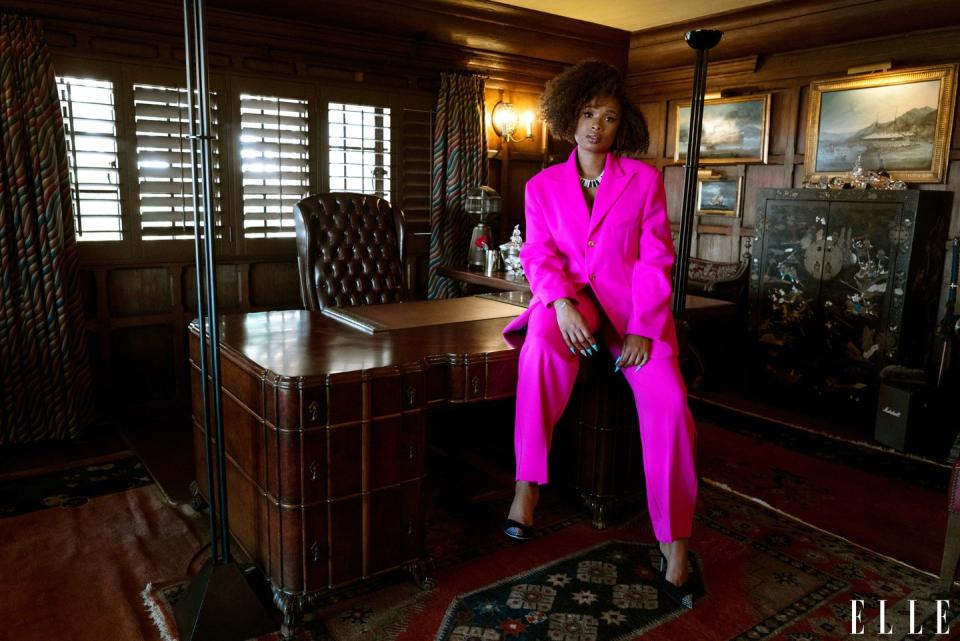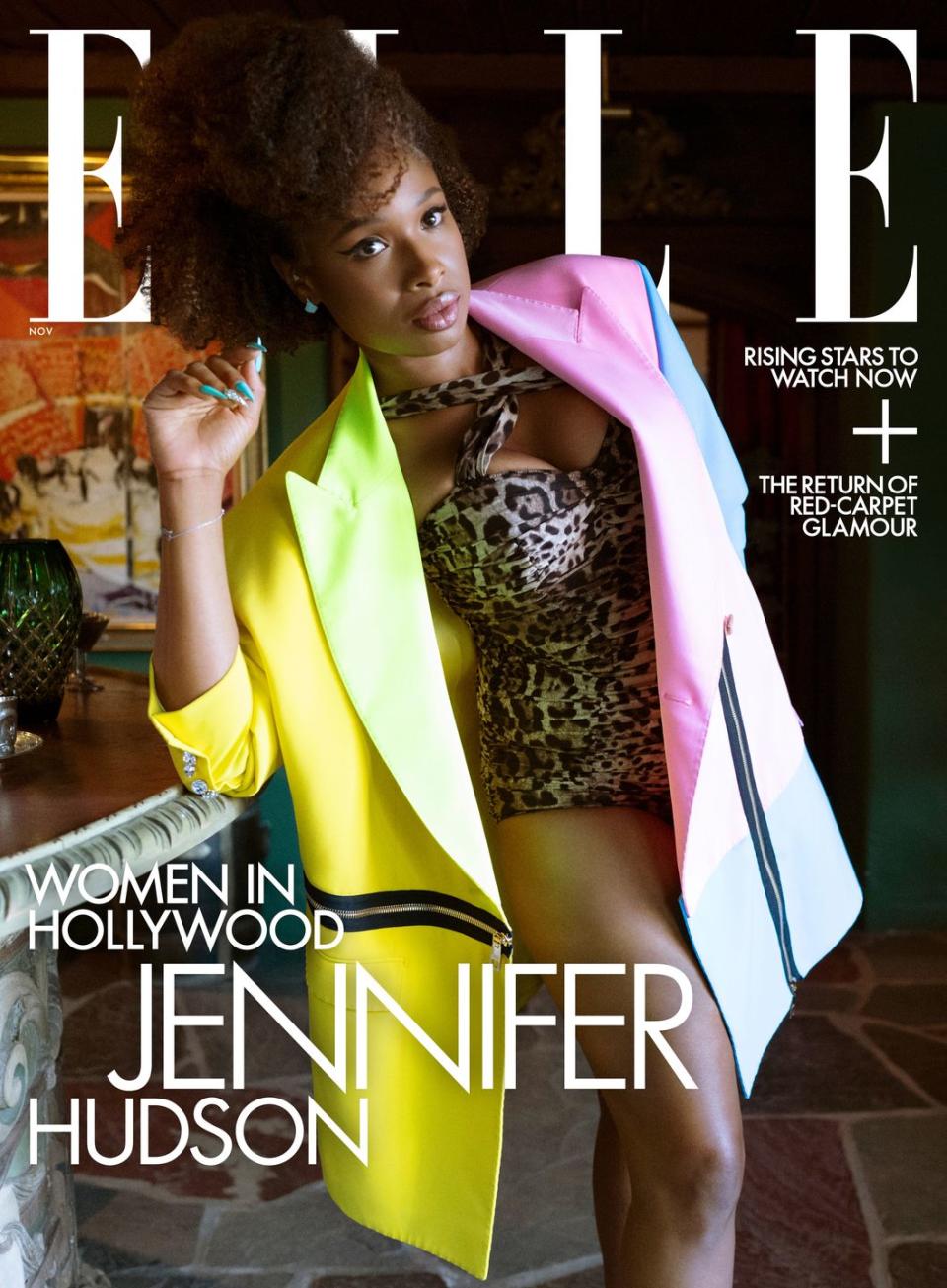Jennifer Hudson Is the Queen of Respect

- Oops!Something went wrong.Please try again later.
- Oops!Something went wrong.Please try again later.
- Oops!Something went wrong.Please try again later.
"Hearst Magazines and Yahoo may earn commission or revenue on some items through the links below."

About a quarter of the way through Respect, audiences see Jennifer Hudson as a young Aretha Franklin, covering Dinah Washington’s “This Bitter Earth” at the Village Vanguard. Seconds later, Mary J. Blige’s Washington, seated in the middle of the New York City jazz club, flips her table, yelling, “Bitch, don’t you ever sing the Queen’s songs when the Queen is in front of you!”
While vivid and memorable, the scene is not historically accurate. Rather, it appears to be a composite of two incidents—a similar outburst Washington had lobbed at Etta James and a critique about the messiness of Franklin’s dressing room. But it underscores, in a meta way, one of the greatest truths of the film: how damn near impossible, perhaps even blasphemous, it is to attempt to conjure the Queen of Soul, even for a prodigiously talented star like Hudson.
“I sit and think about it, like, What artist is built like that?” Hudson says, via Zoom, while trying to describe Franklin’s gift. “She was music. She was anointed, and her life was anointed.” But Franklin clearly saw something in Hudson, asking to meet with her following her Oscar-winning performance in Dreamgirls, and finalizing the decision while Hudson was in The Color Purple on Broadway. “It was my dream to play her,” says the actress, 40. “So then for her to say she wanted me to play her, it was a dream come true.”
The film, directed by Liesl Tommy, addresses the childhood traumas—including the untimely death of her mother—that helped inform Franklin’s singular voice, as well as the abuse she endured from her first husband and manager, Ted White (Marlon Wayans), and her eventual descent into alcoholism. But it is also book-ended by salvation through religion and song, beginning with Franklin singing alongside her father, Rev. C. L. Franklin, and ending with the recording of her seminal gospel album, Amazing Grace, at a Baptist church in Los Angeles.
Like Franklin, the Chicago-raised Hudson grew up in the church (her initial performance on American Idol was the first time her family heard her sing secular music). And her first onscreen appearance in Respect takes place during a rousing church service. “After the take was done, the congregation was still carrying on,” Hudson says with a laugh.“They were shouting in the spirit, and I’m still singing, and the camera people were like, ‘What is happening?’ But it was like, ‘We having church.’ ”

BEAUTY TIP: The secret to defined curls is hydration: Try a styler like TRESemmé Flawless Curls Moisturizing Mousse, which uses two oils to condition the hair without weighing it down.
Also like Franklin, Hudson has experienced more than her fair share of trauma. In 2008, her mother, brother, and seven-year-old nephew were murdered. Hudson’s estranged brother-in-law is serving a life sentence for the crimes. Toward the end of Respect, Hudson’s Franklin has a vision of her late mother, stepping away from her piano to embrace her daughter and remove a drink from her hand. “That scene, in that moment, felt so real to me,” Hudson says. “One of my last moments with my family was in my home by the piano. And for me, when I’m trying to find my inner peace, I always go to the piano and play a song that was inspired by my mother.”
A challenge for Hudson, who describes herself as “very talkative and expressive,” was to convey Franklin’s subtlety. “Even when she was her most powerful and most fabulous, [Franklin] was very careful with her words,” Tommy says. “I was attracted to that side of her, why she was that way and how she changed from someone who was unsure and shy to someone who was clear about herself, who had agency, and who stepped into her own power. That was the journey I was interested in.”
The role marks a full-circle journey for Hudson as well. Her audition song for American Idol was Franklin’s “Share Your Love With Me,” after all. And this past August, Hudson wowed audiences at the We Love NYC: The Homecoming Concert in Central Park with a breath-taking performance of “Nessun Dorma,” the aria Franklin famously sang at a moment’s notice at the 1998 Grammys, when Luciano Pavarotti fell ill. Hudson gave an encore performance of the piece the following weekend at Dolce & Gabbana’s Alta Moda show in Venice.
Also over the summer, Hudson signed on to star in an anthology project called Tell It Like a Woman. Her segment, “Pepcy & Kim,” directed by Taraji P. Henson, centers on the true story of Kim Carter, a former addict who now helps other women take back control of their lives. While Hudson acknowledges that “music is the undertone” that helps her connect to emotion in her work, she’s also excited about the prospect of just acting. The next dream biopic role she’s currently manifesting: “I would love to play Oprah,” she says.
But for now, Hudson has reentered the awards-season conversation, with many touting her Respect showing as a worthy contender for the Best Actress Oscar. To costar Wayans, the accolades couldn’t be more deserved. “She did take after take after take, singing live. The woman never even asked for lemon and hot water or salt water to gargle with. She was a machine,” he says. “I’m just so happy that I got to watch that type of greatness. A queen played a queen. It’s a beautiful thing to see.”

Hair by Kiyah Wright at Muze Hair; Makeup by Adam Burrell for M.A.C. Cosmetics; Manicure by Francesca Brown; Produced by Jonathan Bossle at Tightrope Production
This article appears in the November 2021 issue of ELLE.
You Might Also Like

